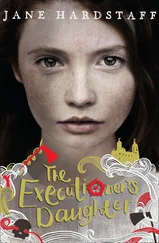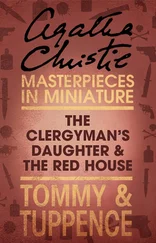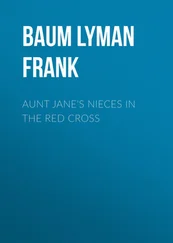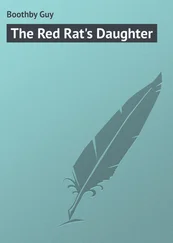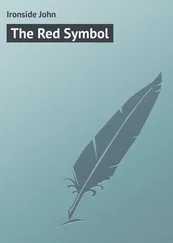And I would. I swear. I might. Everything.
But there is a problem. From her letters, I only now realize, I have come expecting my mother’s velvet-dark Georgian eyes. My mother’s face. The Widow’s eyes, however, are light brown, each with a streak of yellow. There is something feral in them. My father’s eyes, not my mother’s. They sparkle restlessly but do not shine with heart. They speak but do not listen. They are ready to act but not to wait. Shallows rather than depths. I can find in them none of my mother’s shy humility or rigorous conviction, her fierce sense of sacrifice.
I stand before the Widow with the smile of a stunned child on my face, trying to hide my disappointment. Of course, it would be pathetic of me to believe whatever rhetoric about cosmically substituted daughters and the magic of rarely found names.
But instead of answers, I am left now with the wrong set of eyes. The wrong face. A feeling, looking into this older woman’s voracious gaze, of meeting, out in a wilderness I did not realize I was wandering into, a very sophisticated predator in camouflage.
What would it mean to tell her everything ? How would I begin?
But she is talking, not listening.
We are special here, different from others. Abiding by shared principles of aesthetics and mutual obligations. Seeing what we do and how we live as inseparable from nature. It was my husband’s belief that not all nature is architecture, but all architecture should be nature. This place you have come to, this community, is the living embodiment of his vision. My role is essentially that of humble messenger, guiding protectress, spiritual den mother. I do what I can to teach our ways to those who choose to be a part of what we do, to keep energies flowing, to ensure that nothing vital gets lost.
You will meet everyone of importance at dinner this evening. I am seating you next to Sid. He was my husband’s very first apprentice here. There is nothing about this place or our sister home in Wisconsin that Sid does not know. Quite simply, we are his life and family. He could not be fulfilled without his work here, nor would he wish to be. You could not be in better or more considerate hands. You may trust him completely.
So she instructs me, when I fail to attempt to tell her everything. When I smile and am silent. She takes my silence as a vessel to be filled, and fills it. And I let this be done.
17 March
A brief respite before drinks are to start again, day number two, in the main structure, past the triangular pool and the stone Buddha and the Japanese lanterns that do not feel like what I imagine Japan feels like. Everything, even recognizable objects and shapes, has an imprint upon it, bears the watermark of the Artist, who, like God, decided that all aspects of his world would be like this. And it is like this. He had this place built out of the desert rock. Tens of strapping young apprentices brought across the country from green Wisconsin, some hardly more than beautiful boys who wanted to learn from him and one day be like him, and he set them to work in the rock with shovels and pickaxes and levels.
There are other young apprentices here now. Last night at dinner they stood behind us as we ate, dressed in theatrical finery, serving us course after course of rich, spicy Mexican food prepared by yet more apprentices toiling unseen in the kitchen. A willing army of architect cooks and waiters, constantly refilling our plates and wineglasses with abundance.
Is there something wrong with your back? the Widow hisses to one handsome fellow, carrying a bowl of mole chicken from the kitchen.
No.
Then stand up straight.
We are eight people, including the Widow, her daughter, and Sid Evans— the innermost circle, it is called. Sid in his late fifties, tall and imposing, with a masculine square American face. Other tablemates hold various positions of significance within the Fellowship and architectural practice. But there is only one true authority among us, of this there can be no doubt. From her seat at the head of the table, the Widow directs all conversation. It is she who doles out topics, observes us as we speak, listens to us as in the ancient days of the gods oracles once listened to the poor, believing mortals. Will our prayers and beseechments be heard? What will our futures be? A red cloak draped over her shoulders. The table too, red and polished, centered by an elaborate floral arrangement, gleaming with golden cutlery and crystal goblets.
Have you tasted the pico de gallo? Our cooks make their salsa the way the Mayans did, with mortar and pestle. I insist on the traditional method. I used to teach them the proper technique myself, but by now my lessons are so ingrained they are absorbed without direct intervention.
Which doesn’t keep Mother from sending dishes back all the time, Vanna says.
Work must be done correctly. Standards upheld. Or the point of the labor is lost and there is no surrender and no enlightenment, the Widow says . I am sure Svetlana knows what I’m talking about.
My father’s table was like this. He sat at the head and watched and listened. He pronounced and declared. He rarely laughed and never alone, for there were always others ready to join in at the first sign of bitter amusement in his eye.
What do you think, Sid? the Widow demands.
Seated on my other side from her, he has said almost nothing throughout the meal. Not rude, but kept within himself. Even without much conversation, however, he has managed to suggest a certain attentiveness. Several times I have found him watching me from quite close with a gentle sorrowful expression, as if regretting his laconic qualities but helpless before them. Sid’s a real westerner, Vanna said during our wild ride from the airport. Taller than John Wayne and better looking . Some kind of cowboy, then? Not with his gaudy evening attire, I would say, the sand-colored tuxedo and lavender shirt ruffled down the front, which he seems to relish wearing, and the golden owl pendant with sapphire eyes hanging from a long gold chain around his neck (all the other men at the table proudly exhibiting the same ornament, like winking members of a secret guild), and the nugget-size silver-and-turquoise ring on the small finger of his left hand.
The salsa, the Widow prompts, beginning to sound put out.
Perfectly authentic, Sid assures her.
She smiles and turns to the rest of us. I am so glad that Sid and Svetlana have finally met!
—
At the end of dinner, as we are to proceed into the living room to hear a recorder concert performed by some of the same apprentices who have been serving us at table, Sid stands first and helps me from my chair. His hand on my arm surprisingly soft and smooth; I see half-moon, carefully tended fingernails and knuckles like buffed marbles. His powerful height, unfurled now, and those bereft eyes move me, I confess. The air of loneliness about him all the more acute for persisting in the midst of such communal self-regard, heightened rather than relieved by the excessive displays of costume.
Has Sid offered to give you a tour in the morning? The Widow is suddenly beside us, fingering her red cloak.
I was just about to, he says.
You’ll want to show her Scottsdale too.
Yes, I’ll take her shopping.
Her gaze fixes on him a moment longer, a hardening lacquer over some fluid, private dialogue between them. As you can see, Svetlana, Sid adores beautiful things. And he loves to be generous with others, regardless of cost. He’s like my husband that way. She reaches out and firmly grasps my hand. Come, let us hear some music. If we’re lucky, perhaps Vanna will dance for us.
Читать дальше




